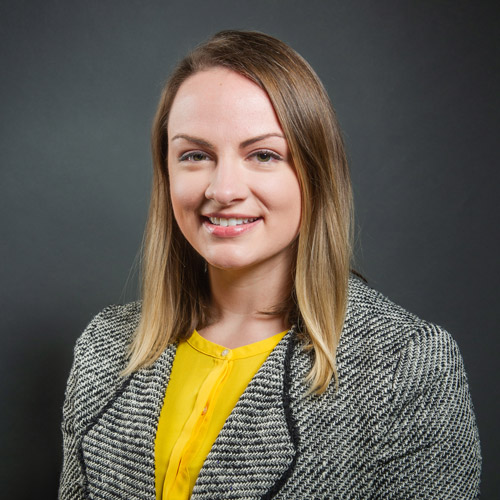Boston University Weekly COVID-19 Report: December 9 to 15
From half a million fall COVID-19 tests, .14 percent were positive—officials pleased but say strict adherence to protocols must continue for spring
Boston University publishes its COVID-19 testing data on a public-facing dashboard. Gloria Waters, BU vice president and associate provost for research, and Judy Platt, director of BU Student Health Services, provide a weekly update on the overall health of the BU community. This is their final report for the fall 2020 semester.
Boston University is preparing to close out its fall semester, but not everyone will be leaving campus just yet, as 82 students currently remain in isolation housing with coronavirus infections.
Overall, between December 9 and 15, 61 students, as well as 25 faculty and staff, tested positive for the virus.
Many students who are in isolation or quarantine housing as a result of COVID-19 infections, or after exposure to a close contact who tested positive, will remain on campus until BU Healthway has cleared them to leave. Isolation and quarantine housing, as well as the dining and residential services that serve those units, will be running as usual.
Yet despite the lingering cases—many linked to the spike in COVID-19 cases that Boston, the state, and the country saw as a result of the Thanksgiving holiday—out of more than half a million COVID-19 tests that BU administered this semester, only 701, or .14 percent, came back positive. Campuses didn’t experience any uncontrolled outbreaks, no cases of transmission have been linked to classrooms, and no one from BU’s community needed to be hospitalized with severe illness.
“Next semester is going to be a replica of this semester,” Gloria Waters says. “It was successful and so we’re going to do it all again.” Students returning to campus in January or arriving for the first time this academic year will go through a staggered move-in, stay-in-place advisory, and entry testing process like what was done in August. “There is the expectation that we will have more students on campus this spring,” she adds.
Waters says that overall, she and other BU leaders are “really pleased” with how BU’s coronavirus surveillance program worked this fall. “We’ve been able to administer all the coronavirus tests we needed to, we’ve had great test result turnaround time, and we’ve had effective contact tracing. It’s really helped us keep the BU community safe,” she says.
It’s also revealed some striking data. “We’ve learned a lot—looking at the rhythm of the academic semester, it’s striking how you can see a spike after Indigenous Peoples’ Day weekend, Halloween weekend, and the Thanksgiving holiday,” Waters says. Based on when people will be traveling or gathering, the University can predict when cases will go up, she says: “It shows that we do need to be extra careful around holidays and gatherings.”
“One obvious lesson from this semester is that surveillance testing is really critical because of the sheer number of asymptomatic infections,” Judy Platt says. Throughout the semester, about 40 percent of positive COVID-19 tests were asymptomatic cases. “We also saw that when there were stricter public health protocols—physical distancing in classrooms, no visitors allowed into dormitories—that helped curb the spread of COVID-19 in those areas.” And, she says, when people stay in their bubble, limit travel, and don’t mix with other households, infections tend to stay lower.
Platt says the semester’s pandemic-related measures of distancing and isolation have been extremely tough, however, on students, faculty, and staff. “Morale is at a tough place,” she says. “For the many staff who didn’t take a break over the summer, especially those working around the clock on the Back2BU health and safety initiatives, those people are fatigued.”
Over intersession and into next semester, despite the cold weather, Platt is urging everyone—students, faculty, and staff—to find time to connect with others, do things they enjoy, and get outside. “Put your jacket on, get fresh air, promote positive head space. And take a break—take some space for yourself this holiday season if you can,” she says.
In the meantime, Waters and Platt are turning their attention to a Vaccine Preparedness Group convened by BU President Robert A. Brown, which they will chair. The working group is tasked with figuring out how BU will receive, store, and administer vaccines, as well as how the coming COVID-19 immunizations, expected to be available more widely as early as April, will dovetail into BU’s coronavirus surveillance and mitigation programs.
Gloria Waters has spearheaded teams of BU scientists in their development and deployment of a campus-wide COVID-19 testing program and mathematical modeling of community behavior. Judy Platt, chair of BU’s Medical Advisory Group, oversees clinical management and isolation of students and employees who test positive for coronavirus, and helps manage BU’s contact tracing efforts. They are co-chairs of BU’s Vaccine Preparedness Group, which is overseeing the distribution of COVID-19 vaccines allocated to BU by the Massachusetts Department of Public Health.

Comments & Discussion
Boston University moderates comments to facilitate an informed, substantive, civil conversation. Abusive, profane, self-promotional, misleading, incoherent or off-topic comments will be rejected. Moderators are staffed during regular business hours (EST) and can only accept comments written in English. Statistics or facts must include a citation or a link to the citation.